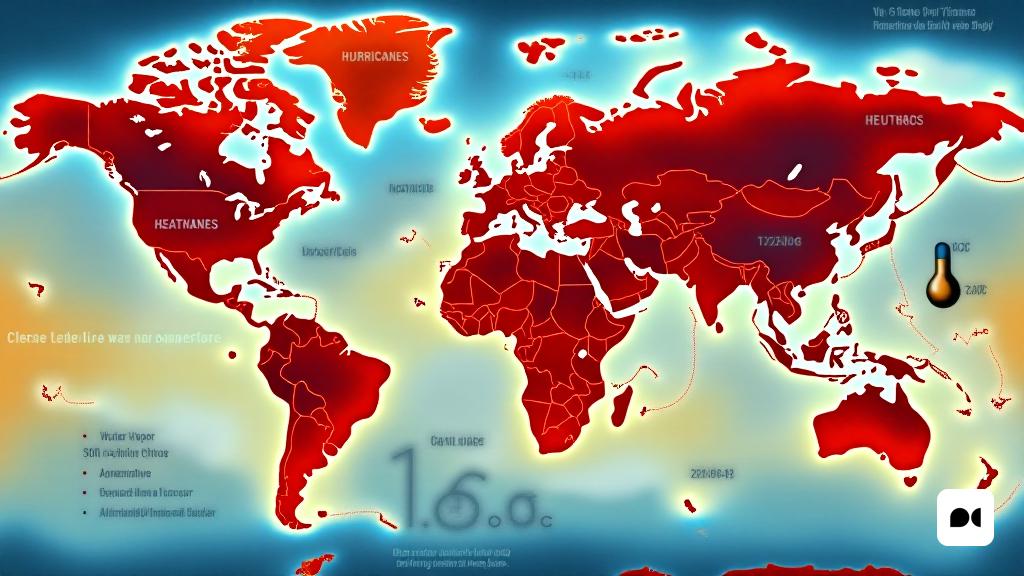An unexpected record: Global warming reaches new peaks
In 2024 he has marked a before and after in climate history, with an increase of 1.6ºC with respect to pre -industrial levels, establishing a new record for global average temperature. According to the Global Climate Highlights Report 2024 of Copernicus, this year it has become the first to overcome the 1.5ºC barrier, a fact that causes concern and reflection on the future of our planet.
The consequences of warming: an alert for Europe
The report reveals that Europe warms up at an alarming rate, duplicating the rate of the rest of the world since the 1980’s. The European polar regions are the worst affected, with an increase in temperatures that have caused the accelerated thawing thaw of glaciers and changes in precipitation patterns. The average temperature of the continent was 10.69ºC, surpassing the historical averages and emphasizing the severity of the situation.
Global Impact: Thermal and Extreme Phenomena
In 2024 he witnessed a significant increase in the days with thermal stress, affecting about 44% of the world’s population on several occasions. In particular, on July 10, extreme temperatures exerted significant pressure on public health, with records that exceeded 59ºC in Algeria. This scenario has been accompanied by a series of extreme weather phenomena, including devastating storms and droughts.
The Oceans: Climate Change Thermometer
Temperatures on the sea surface have reached historical levels, with a record of 20.87ºC in the extrapolar ocean. This terms climb has caused a massive laundering of corals, indicating an ecological imbalance that could have catastrophic consequences for marine biodiversity. The waters of the Mediterranean and other European seas have also registered worrying temperatures.
The water vapor: an ally of heat
Water vapor has played a central role in global warming, with a record increase of 4.9% in the atmosphere. This increase not only intensifies the greenhouse effect, but also enhances extreme rainfall and tropical storms, further complicating the world climate situation.
Futuristic perspectives: a scenario of concern
The forecasts indicate that in the coming years they could bring temperatures average above 1.9ºC above pre -industrial levels, with a probability of 47% that the five -year average exceeds the threshold of 1.5ºC. Carbon and methane dioxide rallies have reached unprecedented levels, highlighting the urgency of effective global actions to address this climate crisis.
Final Reflections: The time to act
With the Copernicus report as a backdrop, it is clear that the time for action is limited. The global community must become aware of the severity of the current climate situation and take decisive measures to mitigate the effects of climate change, before the consequences are irreversible.

